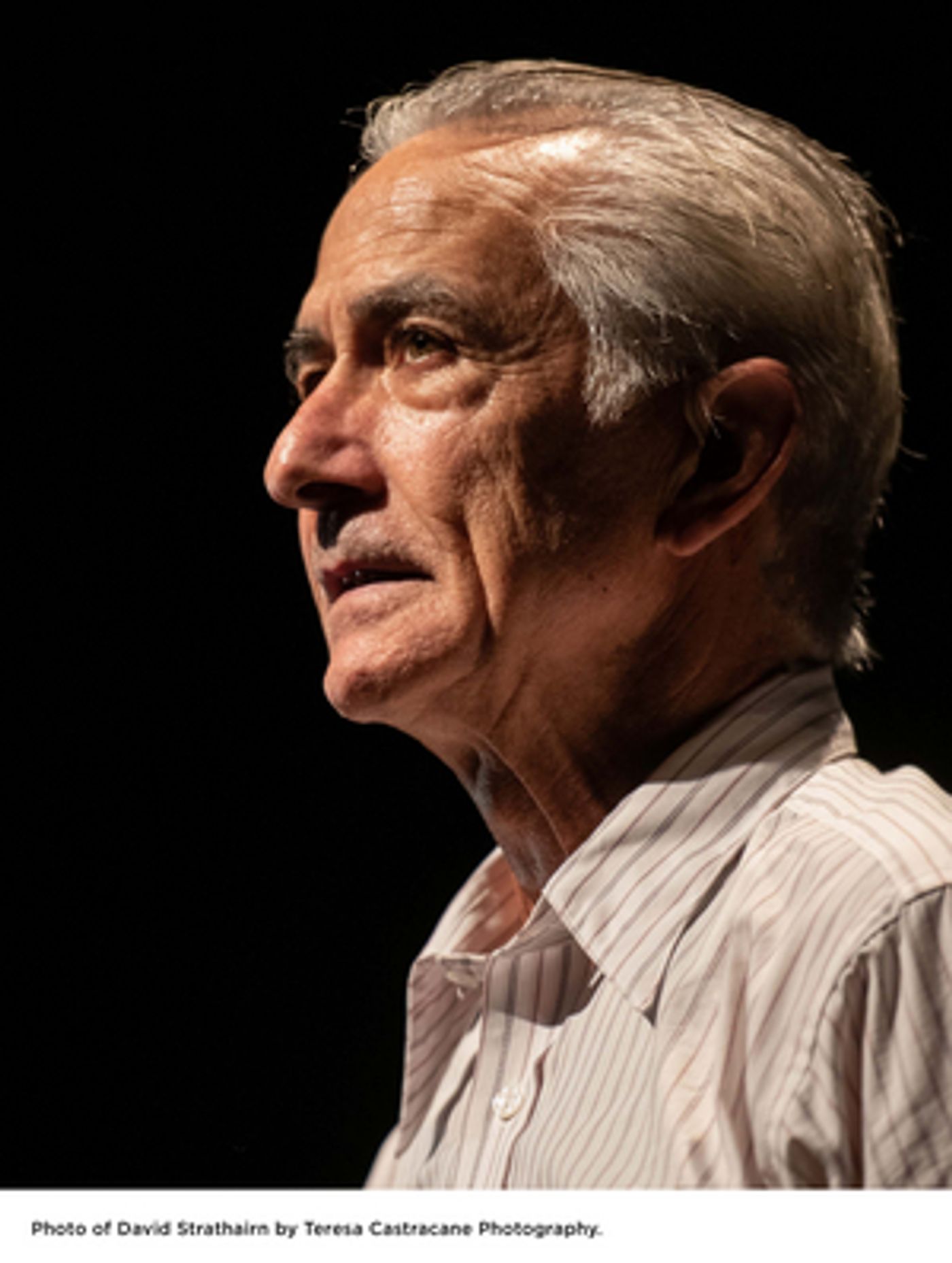Review: REMEMBER THIS: THE LESSON OF JAN KARSKI, at the Michael R. Klein Theatre, Shakespeare Theatre Company
This one-man play, starring David Strathairn, runs through October 17

What if you had an urgent message that was so hideous that no one wanted to hear it and those who did had trouble believing it?
That was the plight of Jan Karski, a Polish diplomat turned resistance fighter who in the early 1940s witnessed the Nazi death camp at Auschwitz and the Warsaw Ghetto. He described what he saw to Allied leaders, his goal to awaken their consciences so that they would intervene and prevent the annihilation of Polish Jews.
That he succeeded in his mission to alert them is astonishing. He had been taken prisoner first by the Russians, who threw him into a labor camp, and then by the Germans, who beat him to within an inch of his life. He fled the Nazis, with the help of Polish partisans, through a daring escape from a hospital.
But Karski failed -- through no fault of his own -- to spur prompt, decisive intervention by British and American leaders. Churchill's gatekeepers wouldn't give Karski access to the prime minister, who after the war denied having known the full extent of the Jews' persecution. Roosevelt heard Karski out, but was more interested in how Poland's agricultural economy played into war strategy than he was in the destruction of three million Polish Jews.
That odyssey is the subject of Remember This: The Lesson of Jan Karski, a powerful if unmistakably didactic 90-minute one-man show starring David Strathairn at Shakespeare Theatre Company's Michael R. Klein Theatre. It was written by Clark Young and Derek Goldman, and directed by Goldman.
The project originated at the Laboratory for Global Performance and Politics at Georgetown University, where Karski earned his doctorate and then taught international affairs for four decades. The script has evolved over seven years and has had multi-actor incarnations.
This lean version, which is also being adapted for film, is a tour de force for Strathairn, an incredibly accomplished veteran of film, TV, and stage roles. (If you get tired of playing Six Degrees of Kevin Bacon, try Six Degrees of David Strathairn. They intersected memorably in the 1994 film The River Wild.)
The current rendition of Remember This is mostly linear and episodic, an intellectually, emotionally, and physically demanding performance as Strathairn throws himself not just into Karski's character but into those of Russians, Germans, Polish Jews, and even Roosevelt. In brief bookend prologue and epilogue sections, Strathairn plays more or less himself as he considers Karski's legacy.
Strathairn is a charismatic shape-shifter. His multiple accents and mannerisms are surprisingly credible, and, with the guidance of movement director Emma Jaster, at 72, Strathairn, who early on trained in professional clown school, flings himself around the starkly set stage, tumbling off table and chair into rolling falls, beating himself up in brutal pantomime. In clumsier hands, such antics could go very wrong, both dramatically and orthopedically, but he pulls them off boldly.
Just as impressive, however, is his emotional versatility and complexity. When you watch Strathairn, you see layers of strength and vulnerability, cunning and instinct, friendship and wariness, vivaciousness and melancholy. In a moment's transformation, he can seem big or small, imposing or pitiful, spiffy or at loose ends.
Zach Blane's lighting and Roc Lee's music and sound design transport us stirringly through small Polish towns, bombed barracks, concentration camp and ghetto. Goldman's direction is effectively brisk and no-nonsense.
That said, the project is decidedly edutainment. After all, the word "lesson" is in the very title. Karski is certainly a worthy topic, but one who wrote, and has been written about, a lot, and he was featured in Claude Lanzman's 1985 mega-documentary Shoah. Any project that brings him back to public consciousness deserves kudos, especially one as well-crafted as this. But what should we take from it today?
Because let's face it -- Karski's saga and Remember This have a deep substrate of futility and despondency.
"Everyone seemed enveloped in a haze of disease and death," Karski recalled of his visit to the Warsaw Ghetto. "We passed a miserable replica of a park, a little square in which a patch of grass had managed to survive. Mothers huddled close together, nursing withered infants.
"Children, every bone in their skeletons showing through their taut skins, played."
Karski's guide explains: "They play before they die."
As in that passage, there is an overpowering sense of existential helplessness to the play, which is like an espionage tale rendered by Beckett. Even its love story, Karski's marriage to the Polish-born dancer Pola Nirenska, ends in her suicide.
This is 2021, though. We don't sip absinthe and sigh. We are primed to treat such art as a call to action. What, then, is a healthy response to the work? What is that titular lesson?
There are many possibilities. Heed, don't turn away from, inconvenient, tragic news. Do something about it. Free, and honor, the messengers of truth.
Battle bigotry? Advocate for oppressed journalists and political prisoners? Help resettle refugees? Donate to candidates with vision and integrity? Resist authoritarianism, extremism, and fake news?
Any or all, the man of faith's ghost whispers as we leave the theater, passing beneath a blowup of his serious, dignified portrait. Take your pick. There is work to be done.
**
Run time: 90 minutes without intermission. Tickets are available here.
Reader Reviews
Videos

